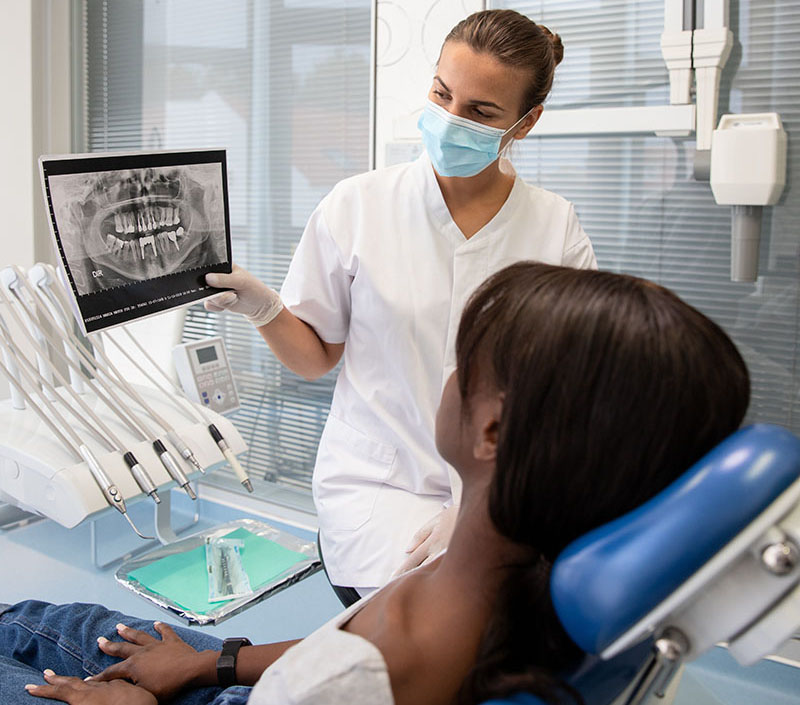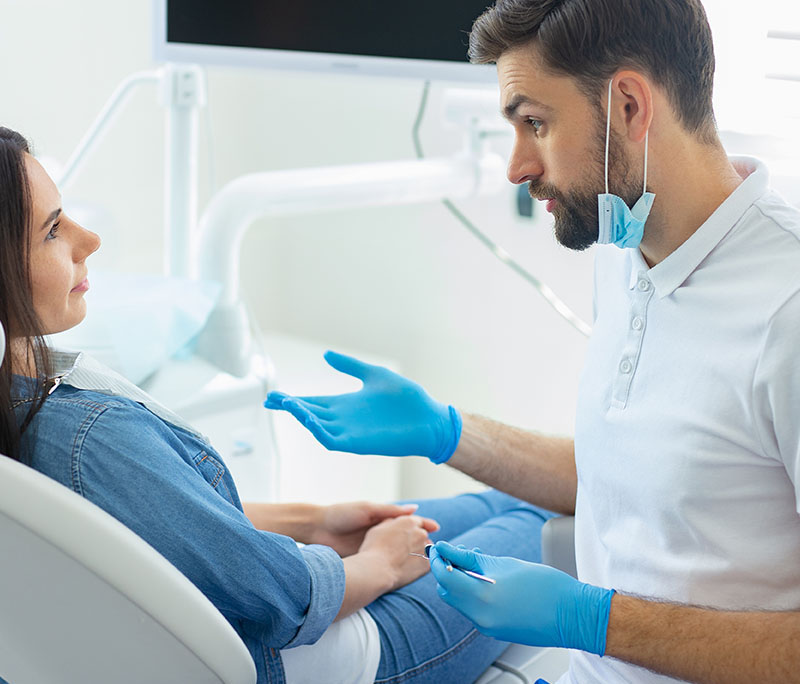Cracked and Chipped Tooth
Cracked and chipped teeth are more than cosmetic issues—they can signal deeper dental problems and cause discomfort. Common causes include injuries, teeth grinding, and chewing hard objects. Cracks vary in size and depth, from minor surface lines to deep fractures that reach the nerve, while chips can lead to sensitivity, pain, or irritation.
If untreated, these issues can worsen, exposing inner tooth layers to decay or infection. Treatment options include bonding for small chips, crowns for larger cracks, and root canals for deep fractures. Prevention involves avoiding hard foods and wearing mouthguards during sports. Prompt care is essential to prevent complications and protect your smile.


When Should You See Our Dentist?
If you suspect a cracked or chipped tooth, prompt dental care is essential. Even minor damage can worsen over time, leading to more serious issues. Signs like sensitivity, pain while chewing, or a jagged edge should be evaluated, even if you're not in pain.
Our dentist will assess the injury using exams and X-rays to determine the best treatment. Delaying care can lead to more invasive procedures. Regular check-ups every 4–6 months and early intervention help protect your oral health.





